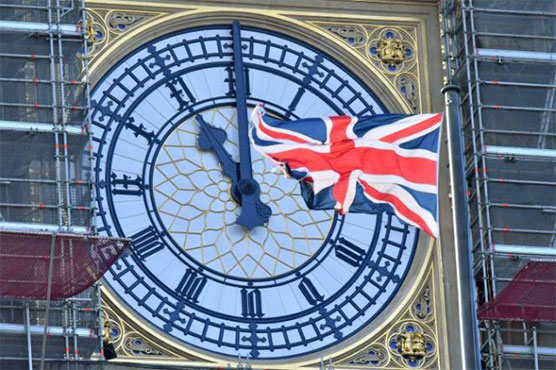'Divergences' bog down EU-UK talks

Talks between the EU and UK have failed to break an impasse towards an accord on post-Brexit ties.
BRUSSELS (AFP) - Two weeks of intensive talks between the EU and UK have failed to break an impasse towards an accord on post-Brexit ties, with chief negotiators from both sides saying Wednesday that major "divergences" remain.
The downbeat assessment, tweeted separately by the EU s Michel Barnier and Britain s David Frost, cast a pall over efforts to strike a deal before the negotiating window closes.
Any accord needs to be swiftly arrived at this month, in time for it to be then ratified before a post-Brexit transition period finishes at the end of December.
Barnier said that "very serious divergences remained" on the three sticking points that have bogged down the negotiations from the start.
Those are: agreeing a framework to ensure fair trade competition; coming up with a robust disputes mechanism; and satisfying the EU s demand of retaining fishing access to some British waters.
"These are essential conditions for any economic partnership," Barnier said.
He added that the EU "is prepared for all scenarios", including no-deal.
The EU negotiator issued his tweet after briefing EU member state envoys and the European Parliament on the state of play following a face-to-face session with Frost in Brussels this week.
Frost meanwhile insisted that a solution needed to "fully respect UK sovereignty".
London has made that its rallying cry ever since the June 2016 referendum that endorsed Brexit, which led to Britain leaving the European Union in January this year after nearly half a century as a member state.
Frost said "I agree with Michel Barnier that wide divergences remain on some core issues".
The two sides will maintain contact through videolink in the coming days and were expected to resume a last-push face-to-face round in London next week.
EU diplomats confirmed the deadlock, with one saying that "I think Barnier s tweet gives a very blunt picture that matches his message to the (EU) ambassadors".
Another diplomat said: "Brexit talks seem to have made some progress lately. Unfortunately, the UK does not seem to be engaging sufficiently on key issues like level playing field, governance and fisheries. Given this situation a no-deal outcome still can t be excluded."
- Low level of trust -
A diplomat who attended Barnier s briefing said the EU negotiator "said he saw a lack of will on the British side".
He said "I was surprised that he was so negative. After two weeks of negotiations like that, I expected something more."
Trust is at a low ebb in the negotiations ever since British Prime Minister Boris Johnson in September submitted a bill to his country s parliament that would override parts of the hard-won Brexit divorce treaty, the Withdrawal Agreement, that was reached late last year.
The EU has started legal action against Britain over that bill, which is still winding its way through the British parliamentary process.
"We can t go forward on a basis of trust with the British, because they ruined that with their decision on the Withdrawal Agreement," one European diplomat told AFP.
That means the EU is now looking for a disputes mechanism that can respond quickly -- and unilaterally, if needed -- to any breach on the British side.
For the EU, the three issues in contention are all linked and conditional for any agreement to be reached, much to the chagrin of Britain, which wants fishing, for instance, to be a separate negotiating issue.
With such little time left to bridge the gaps, "it is starting to get delicate," acknowledged an EU diplomat.
"We re not right at the end of it. You can t say it isn t moving at all, but it s not enough. We don t know if it will be possible to seal a deal in a week or in two weeks," he said.

